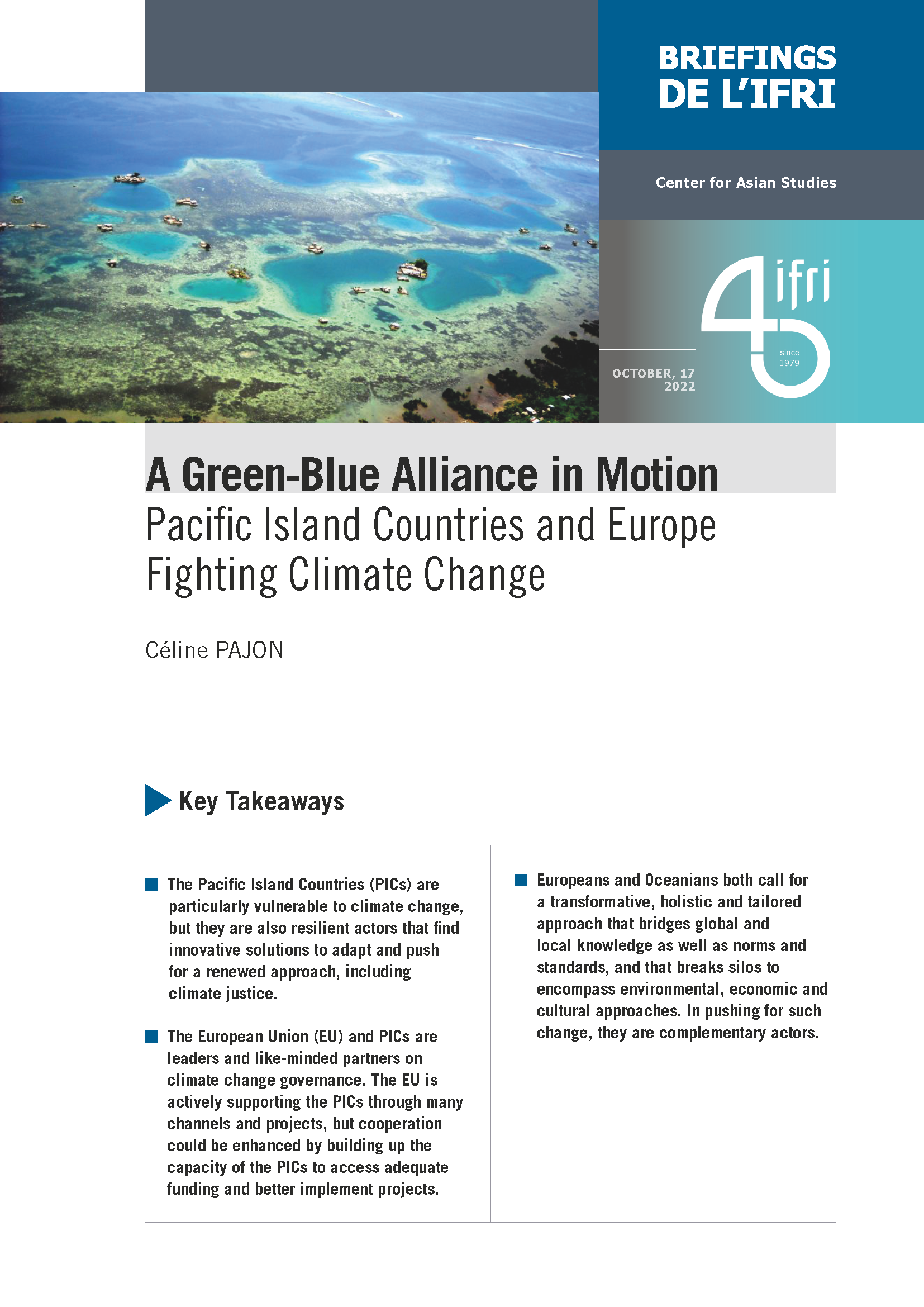A Green-Blue Alliance in Motion: Pacific Island Countries and Europe Fighting Climate Change

The Pacific Islands Countries (PICs) were the first to ratify the Paris climate agreement in 2015. Indeed, for them, climate change has had very concrete implications for years. Islanders have seen the sea level rising, endangering the very existence of atolls. They have also experienced increasingly violent cyclones and other natural disasters, and must deal with multiple impacts of a changing climate on their everyday lives
More than bearing the brunt of such impacts, and they have been calling for the rest of the world to awaken to this existential threat. At the recent UN General Assembly, the government of Vanuatu, supported by other states, led an initiative to ask for the opinion of the International Court of Justice on climate change.
The European Union (EU) has been a proactive leader in international negotiations on climate change; it strives to lead by example and do its share to mitigate climate impacts and support adaptation efforts. But it was perhaps on only this past summer that climate change began to feel very real for European public opinion, as the continent was ravaged by a series of heatwaves, major wildfires and droughts that had serious impacts on biodiversity, agriculture, but also human health. Some have said this is the “end of innocence” for the Europeans on climate change. This episode might help bridge the gap and make Europeans better understand what the populations of the Pacific Islands have been enduring, keeping in mind that PICs are more exposed and have fewer financial resources to implement solutions. It might also raise greater interest about the way Oceanians could adapt and provide innovative solutions.
This Briefing argues that climate change challenges require an innovative, transformative approach to deliver results on mitigation, adaptation, and compensation for loss and damage. Europe and Oceania are two leading actors that already have a fruitful record of cooperation, and are willing to step up their cooperation to lead this transition to a new model.
This paper is based on discussions that took place during the webinar “Climate Change: The Pacific Island Countries, seven years after the Paris Agreement” organized by Ifri’s Pacific Islands Program, in partnership with the Pacific Community, on September 20, 2022.4 Contributions from panelists will therefore be highlighted.
Download the full analysis
This page contains only a summary of our work. If you would like to have access to all the information from our research on the subject, you can download the full version in PDF format.
A Green-Blue Alliance in Motion: Pacific Island Countries and Europe Fighting Climate Change
Related centers and programs
Discover our other research centers and programsFind out more
Discover all our analyses
RAMSES 2024. A World to Be Remade
For its 42nd edition, RAMSES 2024 identifies three major challenges for 2024.
France and the Philippines should anchor their maritime partnership
With shared interests in promoting international law and sustainable development, France and the Philippines should strengthen their maritime cooperation in the Indo-Pacific. Through bilateral agreements, expanded joint exercises and the exchange of best practices, both nations can enhance maritime domain awareness, counter security threats and develop blue economy initiatives. This deeper collaboration would reinforce stability and environmental stewardship across the region.

The China-led AIIB, a geopolitical tool?
The establishment of the Asian Infrastructure Investment Bank (AIIB) in 2016, on a Chinese initiative, constituted an attempt to bridge the gap in infrastructure financing in Asia. However, it was also perceived in the West as a potential vehicle for China’s geostrategic agendas, fueling the suspicion that the institution might compete rather than align with existing multilateral development banks (MDBs) and impose its own standards.
Jammu and Kashmir in the Aftermath of August 2019
The abrogation of Article 370, which granted special status to the state of Jammu and Kashmir (J&K), has been on the agenda of the Bharatiya Janata Party (BJP) for many decades.








